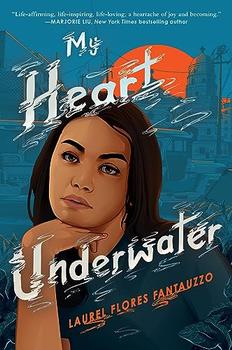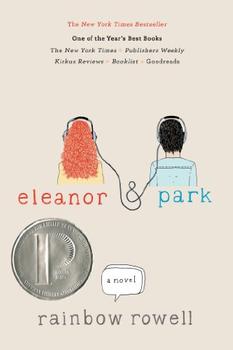Summary | Excerpt | Reviews | Beyond the book | Read-Alikes | Genres & Themes | Author Bio

For four days each year, Miles City, Montana becomes home to the Bucking Horse Sale, a rodeo livestock auction. Filled loudly and brightly with all things cowboy, it is a tribute to that very specific western culture, tradition, and trend, and to feeling a right - a big 'ole right - to celebrating it. Cameron Post, the eponymous narrator in Emily M. Danforth's The Miseducation of Cameron Post, lives in Miles City. And in this big sky/big land/big hat city, she feels anything but right in expressing herself. She feels small. Or maybe more to the point, she feels singular.
This is because, as Emily Danforth says, Cameron is in the throes of coming-of-GAYge. When the story opens, she has just kissed her best friend Irene - and she likes it a lot. But on that same life-changing day, her parents are killed in a car accident. These two events become forever entwined, and so their accompanying emotions - guilt, shame, grief, desire - also become inextricably linked. As a result, Cameron has to name, explore, and come to peace with her sexuality in a culture that approves neither of that journey of self-discovery nor that choice. Yes, Cameron feels singular. And alone. Very alone.
All of these elements make Cameron Post sound like a highly dramatic story. (And I haven't even mentioned the conversion therapy camp that Cameron's very religious, conservative aunt sends her to as a means of "ridding" her of her homosexuality, which encompasses the last third of the book.) But the story is not overly dramatic. On the contrary, the author skillfully and gorgeously creates a seamless and satisfying realistic journey. It is easy to enter the story and follow through Cameron's attempts at making sense of the world. I was interested about the author's writing process and contacted her to ask if creating this structure was an organic process. She replied:
...this particular novel gets much of its tension, I think, not so much from plot machinations but from Cameron's narrative voice; the way she chooses to reveal events and then tries to sort them out (for herself, but also for readers.) This isn't to say that I didn't think carefully about structure, both early-on, before I even had completed a rough, preliminary version of the novel, but also later, when I was revising and cutting and rearranging and really shaping the book... Because Cam spends so much time trying to link events together, to make sense of a, frankly, mostly senseless world, a significant part of her coming-of-age is recognizing that she's never going to be able to make everything "add up" in a satisfying way. All of this informed how I structured the novel because I kept strategically returning to scenes and moments of narrative wherein Cam tries to do this puzzling out, but never very effectively.
The result is a story that breaks your heart because of its deep exploration of both one girl's unique evolving sense and love of self, and the familiar and mundane tiny moments we all face and incorporate into our understanding of the world. Emily quotes John Garner's The Art of Fiction: "We are moved by an increasing connectedness of things, ultimately a connectedness of values." And then she says, "I love this particular definition of what makes a novel a novel. I subscribe to it fully and considered it often while revising."
The Miseducation of Cameron Post makes this love crystal clear. Cameron spends the entirety of the novel making connections; walking slowly forward and then looping back to weave bits of her history with her present and, ultimately, with her future. This spiraling movement is an engaging and compelling process; one most definitely worth participating in. I highly recommend this book to both YA and adult readers alike.
![]() This review was originally published in The BookBrowse Review in March 2012, and has been updated for the
June 2013 edition.
Click here to go to this issue.
This review was originally published in The BookBrowse Review in March 2012, and has been updated for the
June 2013 edition.
Click here to go to this issue.

If you liked The Miseducation of Cameron Post, try these:

by Laurel Fantauzzo
Published 2023
Fans of Adib Khorram and Randy Ribay will love this coming-of-age debut about a Filipina American teen drowning under pressure and learning to trust her heart.

by Rainbow Rowell
Published 2020
Set over the course of one school year in 1986, this is the story of two star-crossed misfits - smart enough to know that first love almost never lasts, but brave and desperate enough to try. When Eleanor meets Park, you'll remember your own first love - and just how hard it pulled you under.
Your guide toexceptional books
BookBrowse seeks out and recommends the best in contemporary fiction and nonfiction—books that not only engage and entertain but also deepen our understanding of ourselves and the world around us.